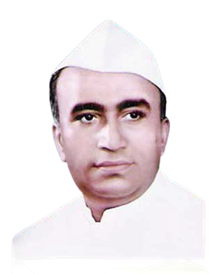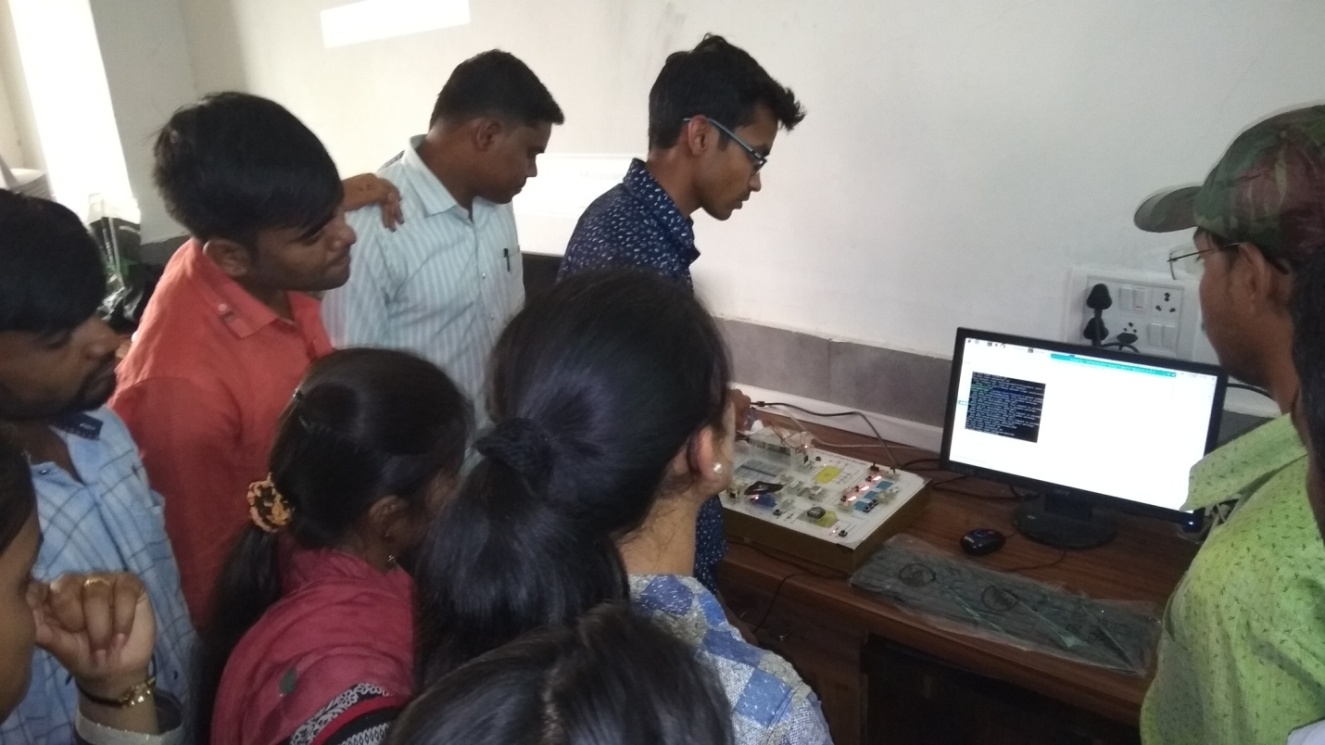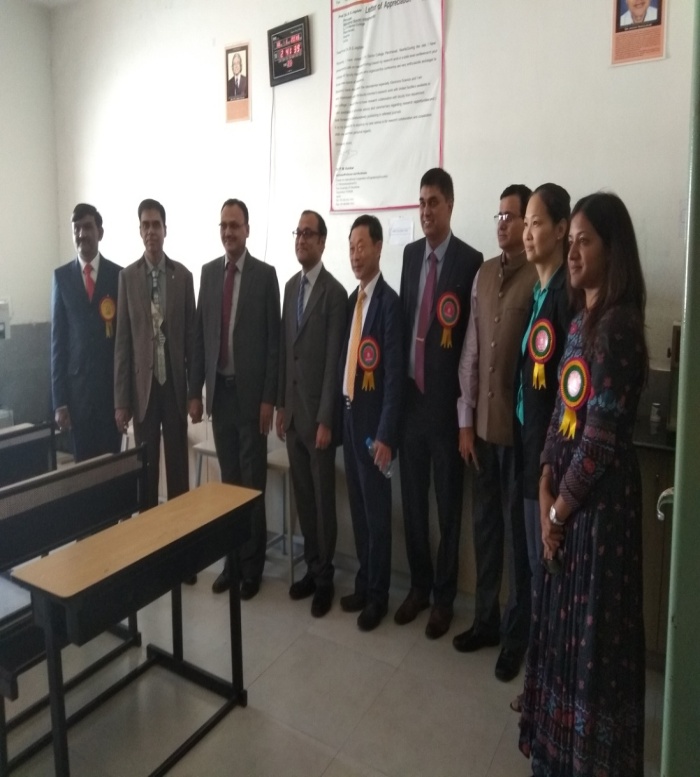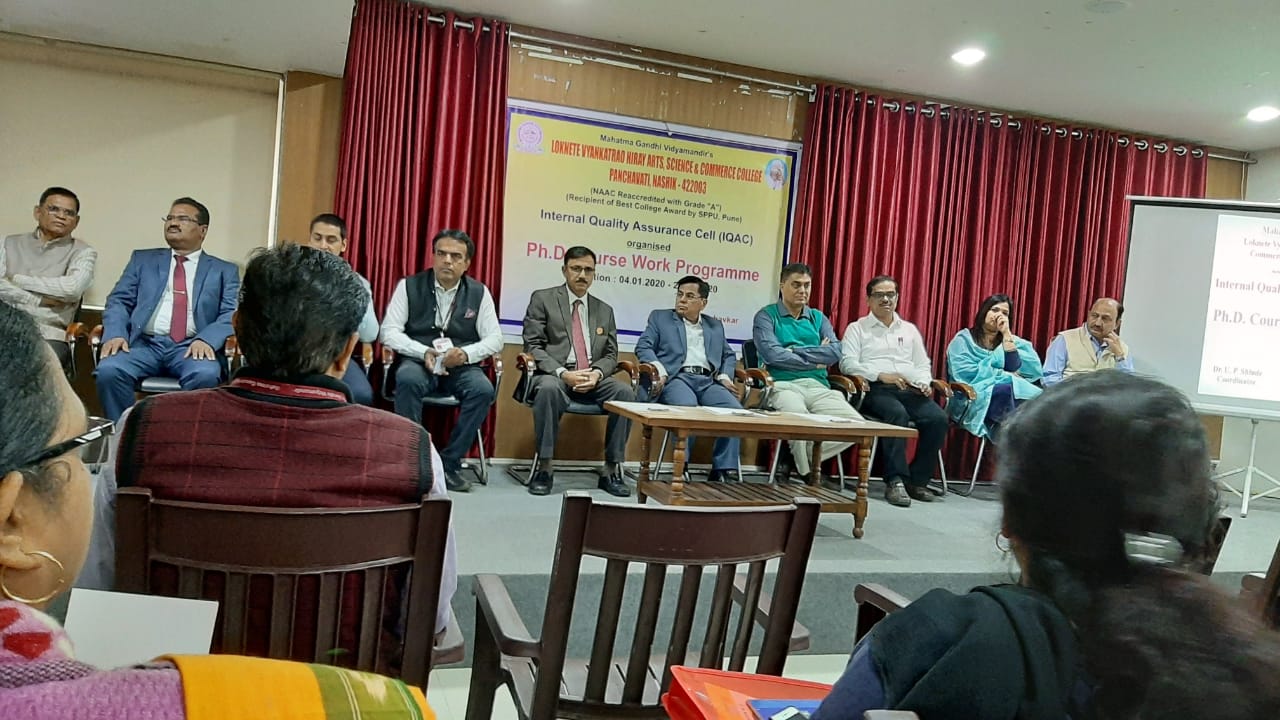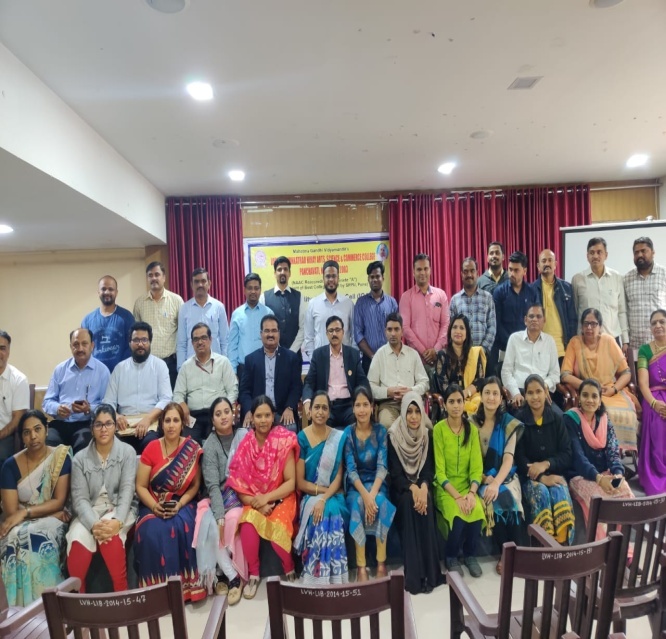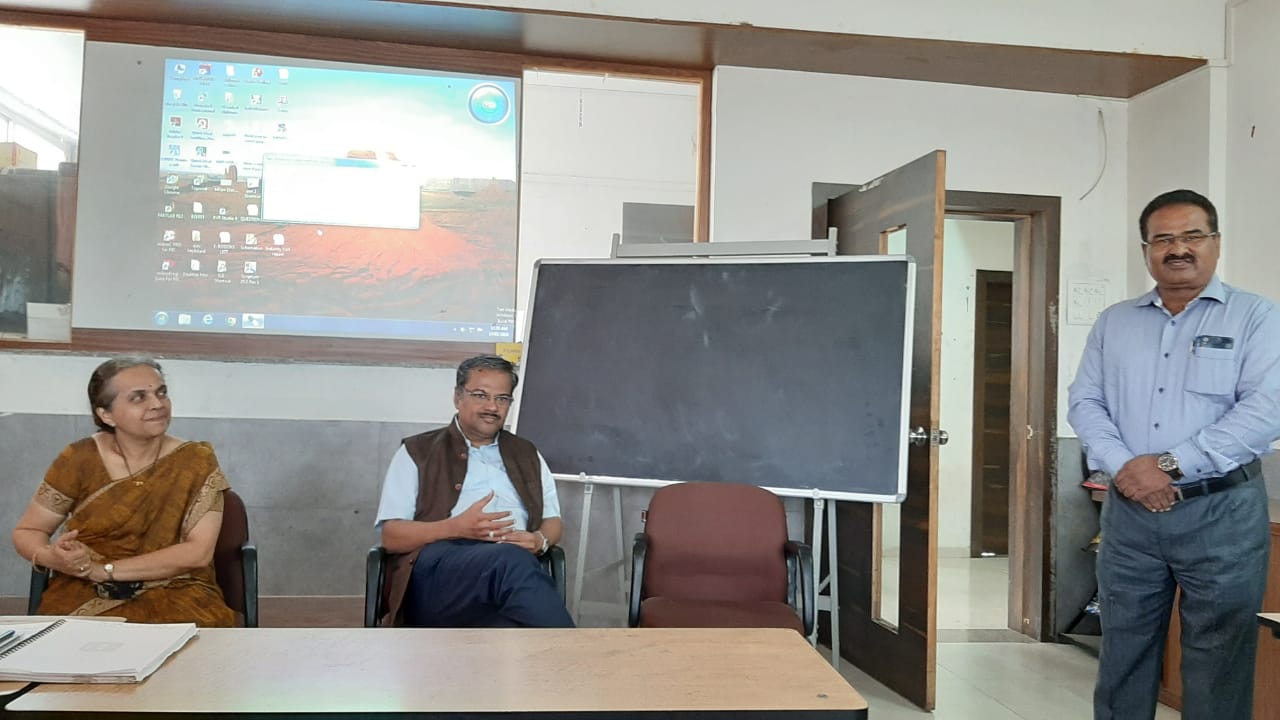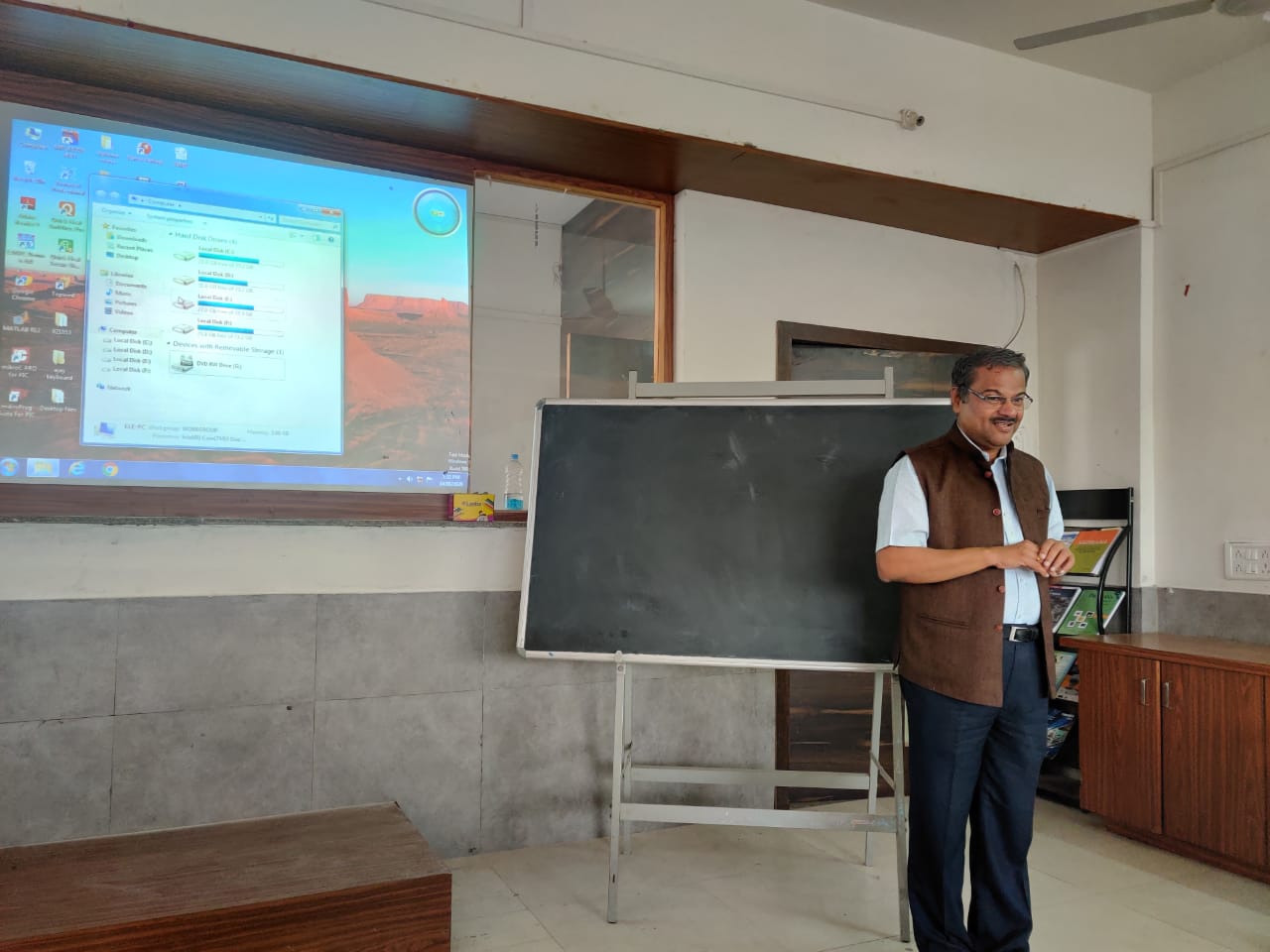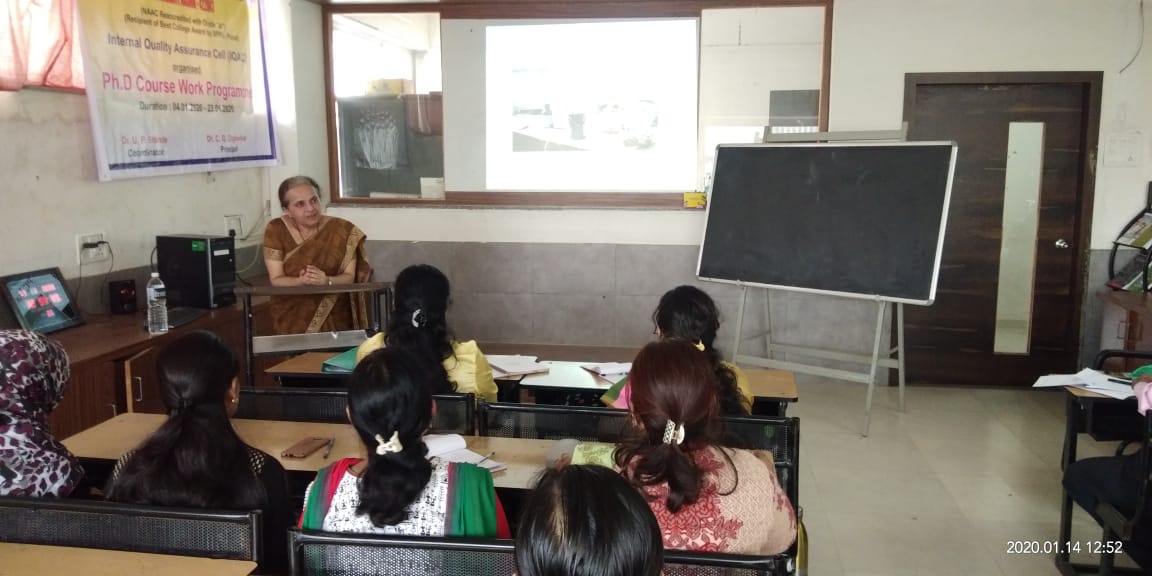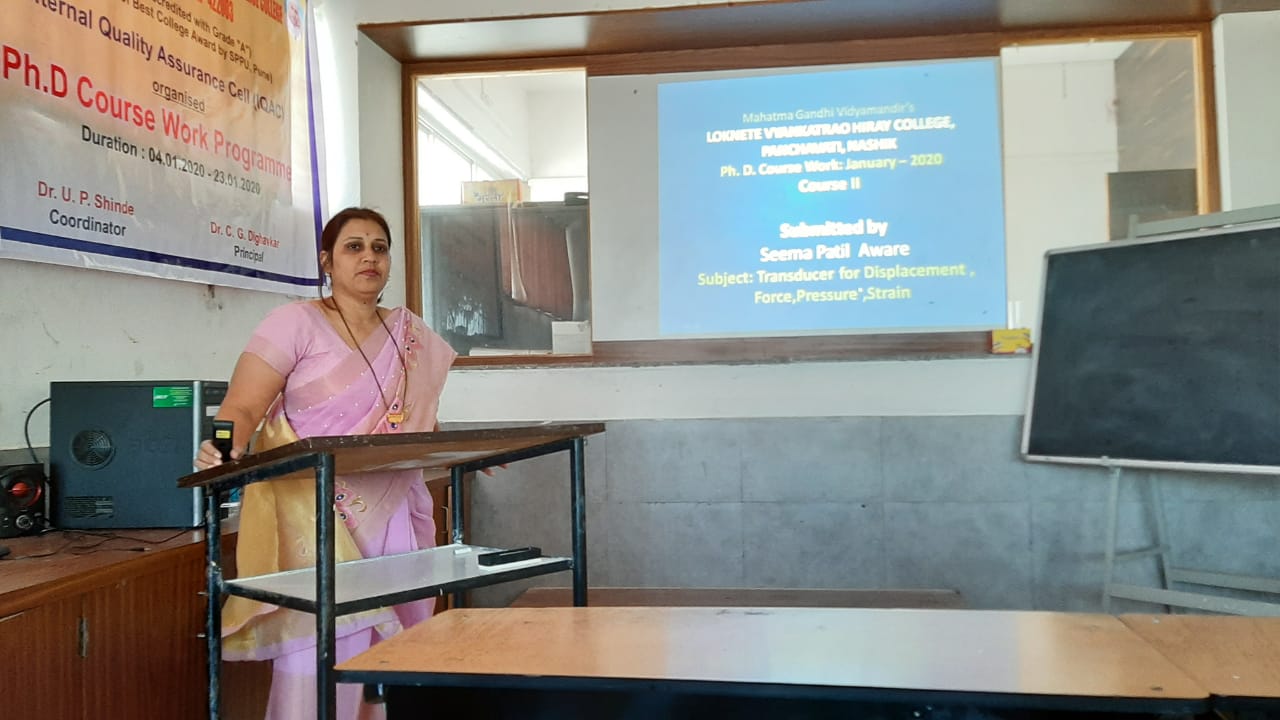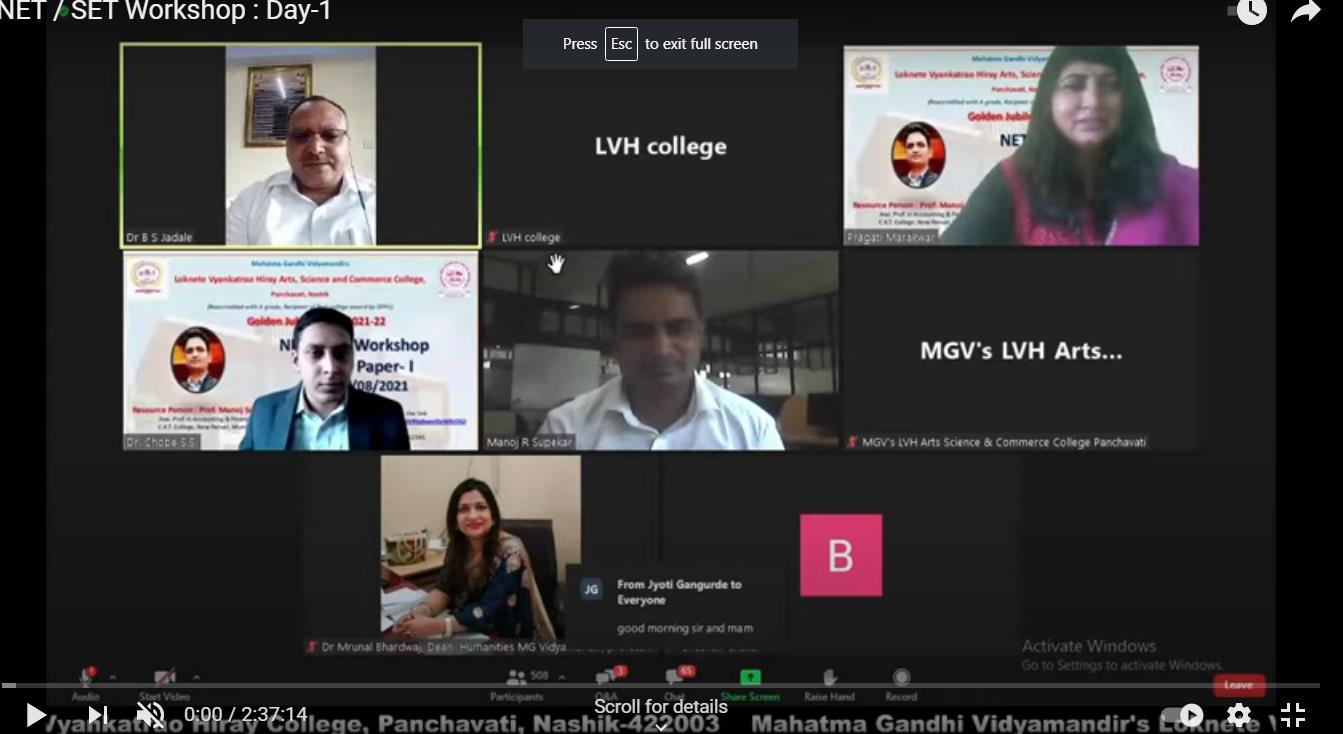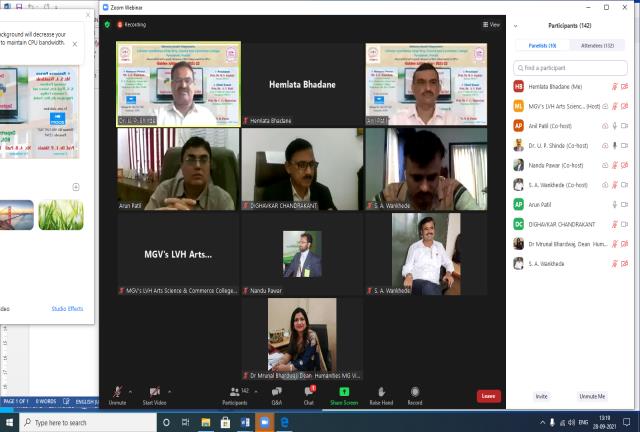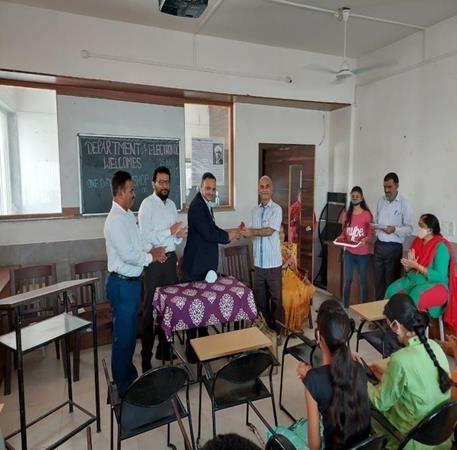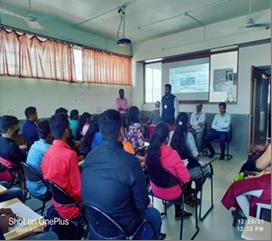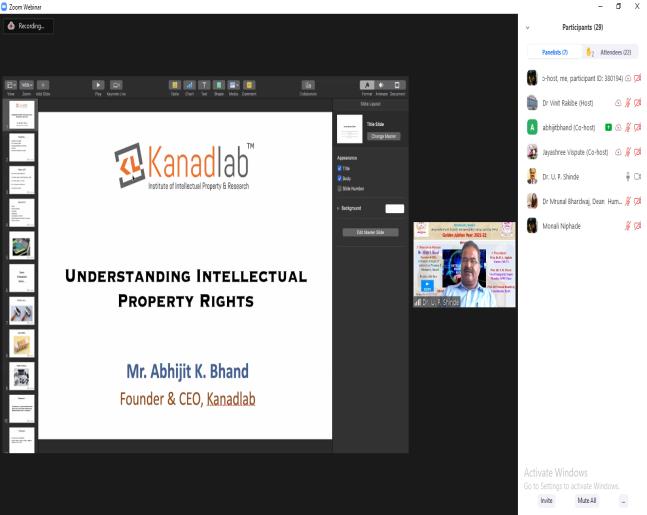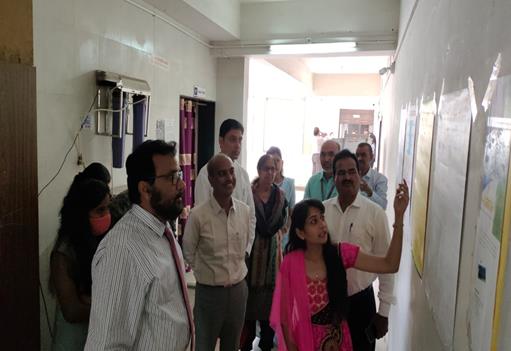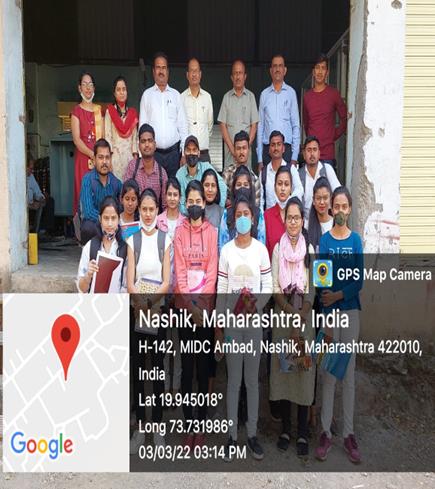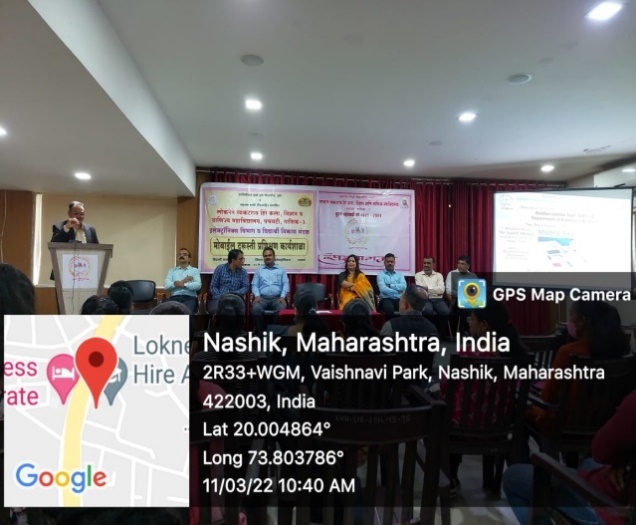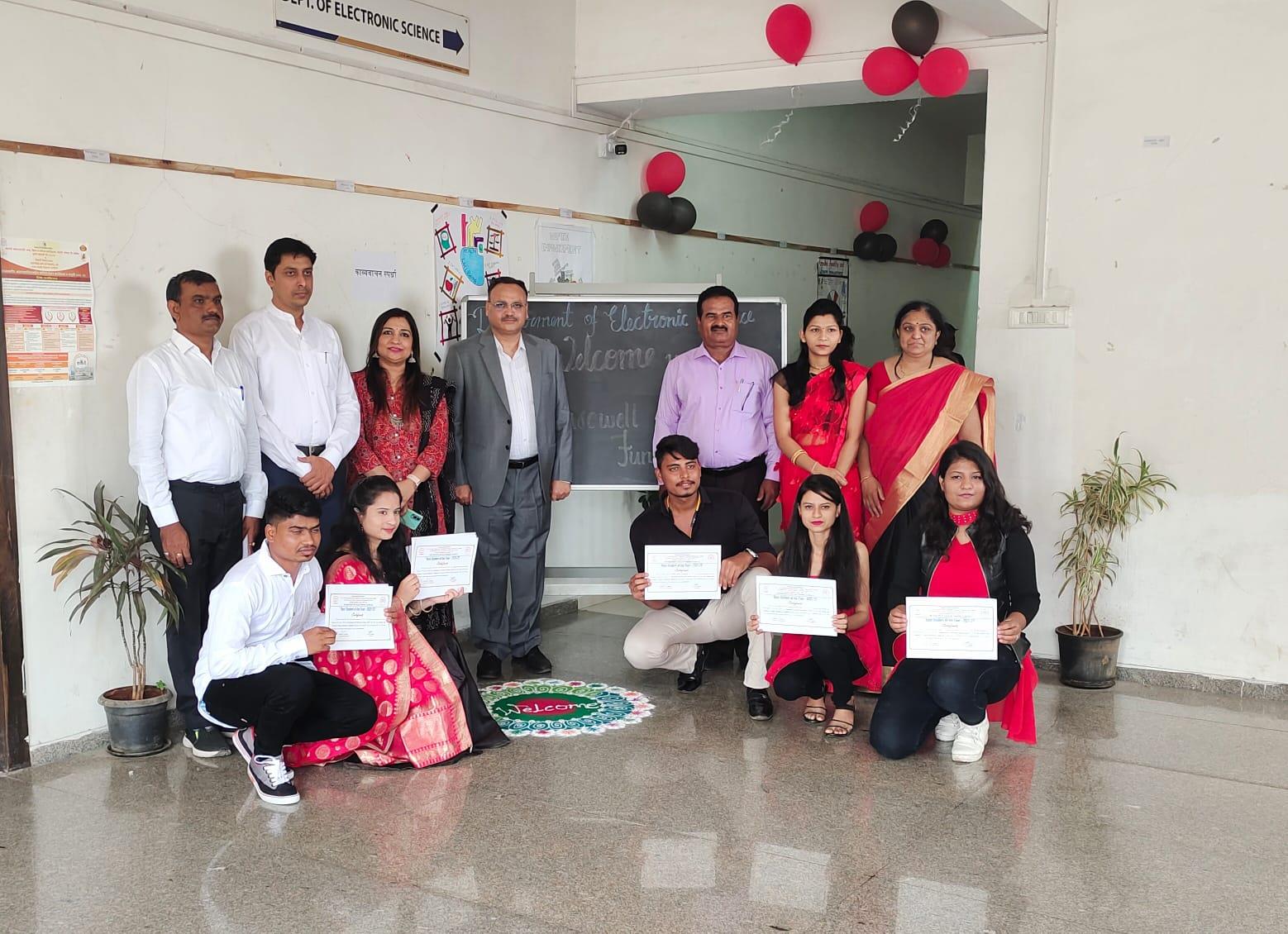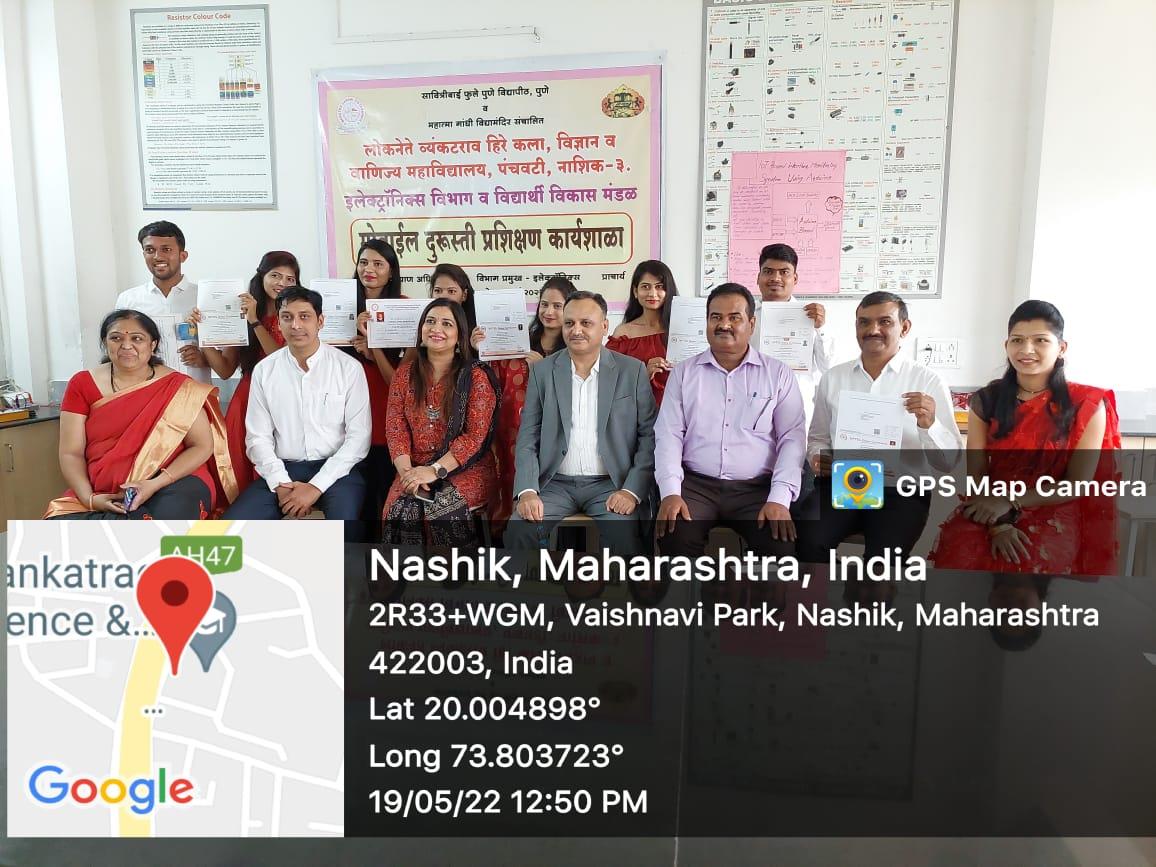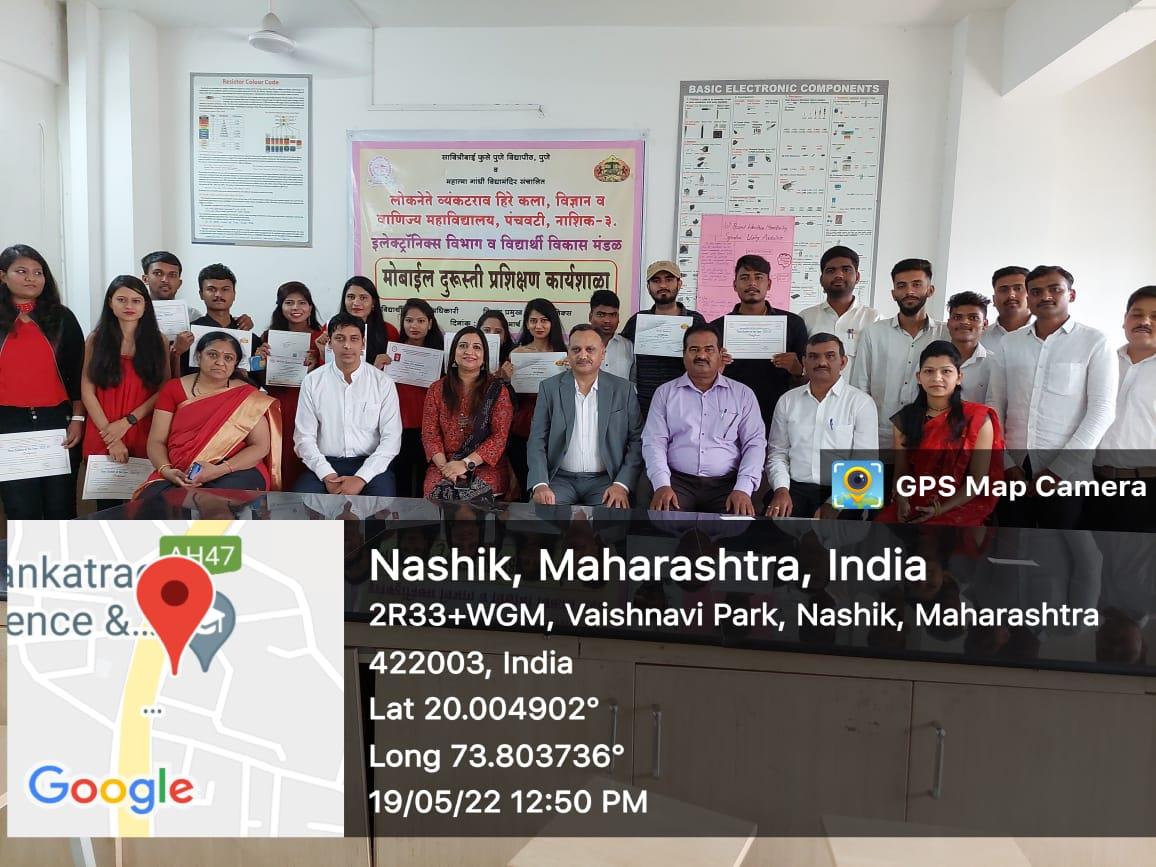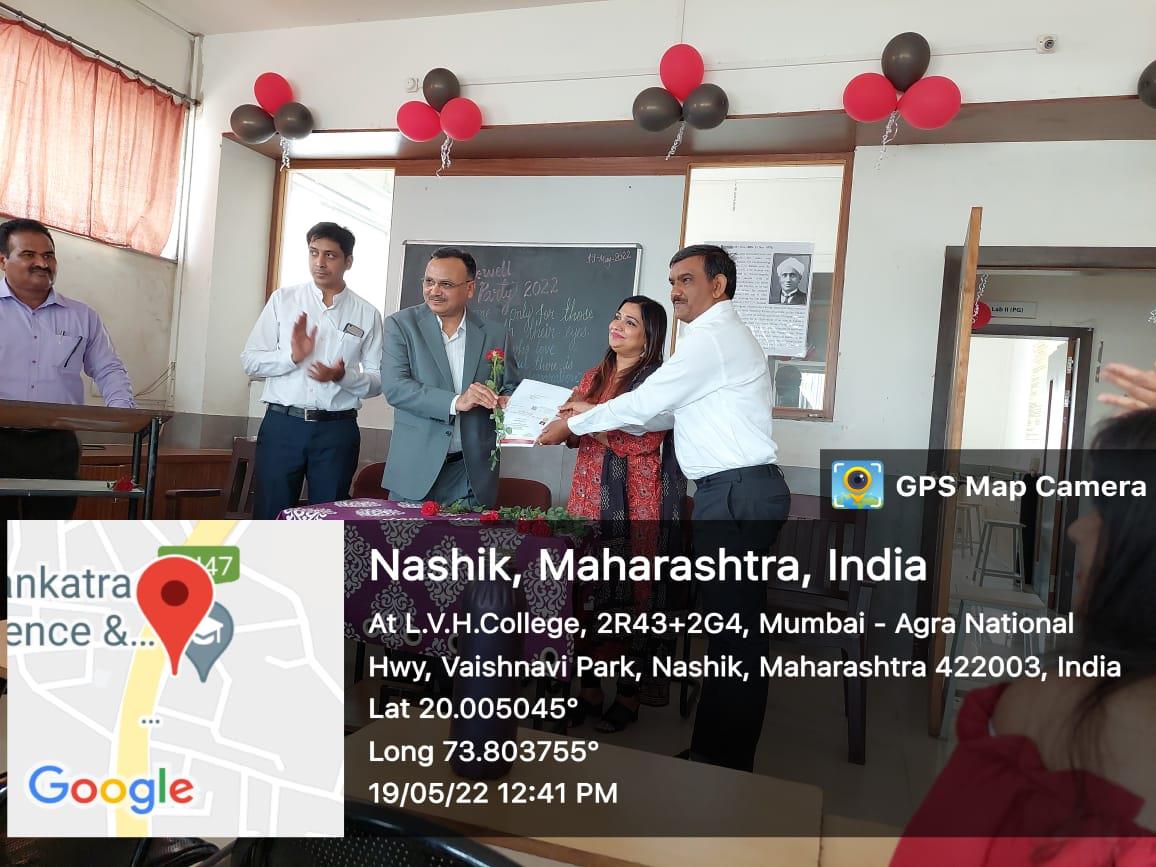Science Department
About the Department
The Department of Electronic Science was established in the academic year 1986. The department offers UG, PG, and Ph.D. programs in Electronic Science. The department has a recognized Research Centre affiliated with SPPU. Taking into consideration the need for time the department also offers One Year Diploma Course in Electrical and Electronics Device Repairing. The department has 04 well- furnished laboratories with advanced instruments and software. One of them is for UG courses practical and two are for the PG Courses. The Material Research Lab is exclusively for research and innovation. The departmental library is enriched with a number of textbooks, reference books and journals. The experienced faculty of the department regularly publish their research work in the UGC CARE list and reputed journals. Identifying the needs of the students the faculty have published 05 books with ISBN number for NET/SET examinations. The department conducts many student-centric activities and avails students’ participation in the competitions like Avishkar and INNOFEST. The department also makes students aware of E- waste management and guides the students for the reuse of E-waste by converting them into practical kits. The faculty in the department are engaged in extension activities through consultancy for Govt. Project of Atal Tinkering Lab.
Features of the Department
- Experienced faculty pursuing and publishing research in diverse research areas.
- Spacious laboratories facilitating the experiments and practical in peer group
- Well-equipped laboratories that can sustain the advanced research
- Enriched departmental library that can avail excellent research/ learning resources
- Organization of student-centric activities
- Competitive exam guidance with the study material/ books developed by the faculty
- Exposure for experiential learning through the concept of reuse
- Effective waste-management mechanism
- Good placement and progression of the students.
Teaching Faculty
| Sr. No. | Photo | Name of the Faculty | Designation | Qualification | Teaching Experience | Link |
|---|---|---|---|---|---|---|
| 1 | 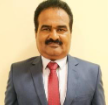 |
Prof. Dr.U. P. Shinde | Head & Recognized Research guide | M.Sc. M.Phil. Ph.D. | 34 | View/Read |
| 2 | 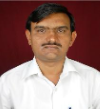 |
Dr. A. B. Patil | Assistant professor | M.Sc. M.Phil. Ph.D. SET, NET | 22 | View/Read |
| 3 | 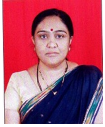 |
Mrs. H. P. Bhadane | Assistant professor | M. Sc. M. Phil. | 08 | View/Read |
| 4 |  |
Mrs. M. E. Niphade | Assistant professor | M.Sc. PET | 04 | View/Read |
| 5 |  |
Mrs. J. B. Pachorkar | Assistant professor | M. Sc. SET | 06 | View/Read |
| Photo | Name of the Faculty | Award | University / Institute /Agency |
|---|---|---|---|
 |
Dr. A. B. Patil | Ph.D. Degree in Electronic Science on 04/05/2022 | Savitribai Phule Pune University, Pune |
MoU/Linkage/Collaborations
| Sr. No. | Name of the Activity | Name of the organization/ agency | Level | Date |
|---|---|---|---|---|
| 1 | UG and PG students visited EPITRANS industry for understanding the manufacturing process of Transformer | EPITRANS Switchgear Pvt Ltd., Ambad MIDC, Nashik | Local | 03-03-2022 |
| 2 | UG and PG students visited to Cognifront Institute for Learning IoT and Python Programming | Cognifront Pvt. Ltd. Panchavati, Nashik | Local | 03-03-2022 |
| 3 | Internship Program of M.Sc-II year students for PLC programming | HBS Automation System, Ambad MIDC, Nashik | Local | 17-01-2022 to 10-02-2022 |
| Sr. No. | Name of the Faculty | Designation | |
|---|---|---|---|
| 1 | Prof. Dr. U. P. Shinde | Head& Research Centre Coordinator | [email protected] |
| 2 | Dr. A. B. Patil | Assistant Professor | [email protected] |
| 3 | Mrs. H. P. Bhadane | Assistant Professor | [email protected] |
| 4 | Mrs. J. B. Pachorkar | Assistant Professor | [email protected] |
Extension Activities
| Year | Sr.No. | Name of Activity | Date of Activity | No. of Participant | Links |
|---|---|---|---|---|---|
| 2017-18 | 1 | One Day NET/SET Workshop | 03/10/2017 | 36 | Link |
| 2 | Guest Lecture by industrial person on “PLC Guidance” | 15/12/2017 | 18 | ||
| 3 | Hands on training On “Arduino and Its Application” | 21/12/2017 | 28 | ||
| 4 | Hands on training On “Raspberry Pie” | 10/03/2018 | 36 | ||
| 2018- 19 | 1 | Industrial Visit/ Study Tour at Epitrans. | 16/01/2019 | 12 | Link |
| 2019- 20 | 1 | One day NET- SET Workshop | 4/11/2019 | 32 | Link |
| 2 | Hands on Training on Internet of Things | 14/02/2020 | 30 | ||
| 3 | Industrial Visit at Epitrans | 15/02/2020 | 26 | ||
| 2020- 21 | 1 | Webinar on “Basics of Microcontroller” | 30/05/2020 | 125 | Link |
| 2 | Project work done at Cognifront Pvt. Ltd, Panchavati, Nashik | Throughout the one semester academic year- 2020-21 | 6 | ||
| 2021- 22 | 1 | Online 11 Day NET-SET Workshop | 20/08/2021 To 30/08/21 | 25 | Link |
| 2 | National Level Webinar on Intellectual Property Rights | 23/02/2022 | 41 | ||
| 3 | One Day “Industrial Visit.” | 03/03/2022 | 03/03/2022 | ||
| 4 | Hand on Training Workshop on Mobile Repairing | 11/03/2022 To 12/03/2022 | 60 |
Strengths
- Well-equipped departmental library and laboratory
- Facilities for advanced research
- Students’ centric activities
- Cultivation of research attitudes and aptitudes
- Facility for Job -oriented certificate courses
Future Plans
- Industry-based field project for M.Sc. students
- MoUs with industries for training and placement and research work
- Development of more research facilities for the synthesis of nanomaterials.
- Introduce certificate/ vocational career-oriented courses in Electronics for students of all faculties.
- Organization of placement camp and internship
| Department | Undergraduate Course | Post Graduate Courses |
|---|---|---|
| electronic-science | PSOs and Cos | PSOs and Cos |
PROGRAM OFFERED
B. Sc. (Since 1986):
- Duration : 3 year degree course (Electronic Science)
- Intake Capacity : 120 Students
- Eligibility for B.Sc. (Electronic Science):
- Passed in 12th Science with Mathematics and Physics with min. 40% marks.
- Passed in three year diploma in E & TC /Electronics/ Computer Engineering of MSBTE.
M. Sc. (Since 2006):
- Duration : 02 year degree course (Electronic Science)
- Intake Capacity : 12 Students
- Eligibility for B.Sc. (Electronic Science):
- Passed in B.Sc. (Electronic Science).
- Merit list out of total applications received for admission
Ph. D. (Since 2017):
- Duration : 03 years +
- Intake Capacity : 48 Students
- Eligibility for Ph.D.:
- Master degree in Electronic Science
- Ph.D. Entrance Test (PET) conducted by S. P. Pune University, Pune.
- Qualified NET/SET examinations conducted by different agencies recognized by UGC, Delhi.
- Completed M. Phil degree in Electronic Science
| B. Sc. (Since 1986) |
Duration : 3 year degree course (Electronic Science)
Intake Capacity : 120 Students Eligibility for B.Sc. (Electronic Science): Passed in 12th Science with Mathematics and Physics with min. 40% Marks. Passed a three year diploma in E & TC /Electronics/ Computer Engineering of MSBTE. |
view |
| M. Sc. (Since 2006) |
Duration : 02 year degree course (Electronic Science)
Intake Capacity : 12 Students Eligibility for M.Sc. (Electronic Science): Passed in B.Sc. (Electronic Science). Merit list out of total applications received for admission. |
view |
| Ph. D. (Since 2017) |
Duration : 03 years +
Intake Capacity : 48 Students Eligibility for Ph.D.: Master degree in Electronic Science Ph.D. Entrance Test (PET) conducted by S. P. Pune University, Pune./ Qualified NET/SET examinations conducted by different agencies recognized by UGC, Delhi. |
view |
| Diploma in Electrical and Electronic Device Repairing |
Duration : 01 year Intake Capacity : 50 Students Eligibility : 12 th (Art, Commerce, Science, MCVC), Diploma, ITI etc. |
view |
| F. Y. B. Sc. Electronic Science (USE- I) | ||
|---|---|---|
| Semester- I | ||
| Paper No.. | Course Code | Name of the Course |
| I | USE(EL- 111) | Basics of Applied Electronics |
| II | USE(EL- 112) | Electronic Devices and Circuits |
| III | USE(EL- 113) | Practical Course- Electronics Lab-1A |
| Semester- II | ||
|---|---|---|
| Paper No.. | Course Code | Name of the Course |
| IV | USE(EL-121) | Fundamentals of Digital Electronics |
| V | USE(EL-122) | Analog and Digital Device applications |
| VI | USE(EL-123) | Practical Course- Electronics Lab- IB |
| S. Y. B. Sc. Electronic Science (USE- II) | ||
|---|---|---|
| Semester- III | ||
| Paper No.. | Course Code | Name of the Course |
| I | USE(EL-231) | Communication Electronics |
| II | USE(EL-232) | Digital System Design |
| III | USE(EL-233) | Practical Course |
| Semester- IV | ||
| Paper No.. | Course Code | Name of the Course |
| IV | USE(EL-241) | Analog Circuit Design |
| V | USE(EL-242) | Microcontroller & Python Programming |
| VI | USE(EL-243) | Practical Course |
| T. Y. B. Sc. Electronic Science (USE- III) | ||
|---|---|---|
| Semester- V | ||
| Paper No.. | Course Code | Name of the Course |
| I | USE(EL-351) | Digital Design using Verilog |
| II | USE(EL-352) | Microcontroller Architecture and Programming |
| III | USE(EL-353) | Analog circuit Design and Applications |
| IV | USE(EL-354) | Nanoelectronics |
| V | USE(EL-355) | Signals and Systems |
| VI | USE(EL-356(A)) | Optics and Fiber Optic Communication |
| VII | USE(EL-357) | Practical Course I |
| VIII | USE(EL-358) | Practical Course II |
| IX | USE(EL-359) | Practical Course III(Project) |
| X | USE(ELSEC-351) | Electronic Design Automation Tools |
| XI | USE(ELSEC-352) | Internet of Things and Applications |
| Semester-VI | ||
| Paper No.. | Course Code | Name of the Course |
| I | USE(EL 361) | Modern Communication Systems |
| II | USE(EL 362) | Embedded System Design using Microcontrollers |
| III | USE(EL 363) | Industrial Electronics |
| IV | USE(EL 364) | Manufacturing Processes for Electronics |
| V | USE(EL 365) | Process Control Systems |
| VI | USE(EL 366(B)) | Sensors and Systems |
| VII | USE(EL 367) | Practical Course I |
| VIII | USE(368) | Practical Course II |
| IX | USE(EL 369) | Practical Course III(Project) |
| X | USE(ELSEC 361) | Design and Fabrication of PCB |
| XI | USE(ELSEC 362) | Mobile Application Development |
| M.Sc. - I Electronic Science (PSE- I)) | ||
|---|---|---|
| Semester- I | ||
| Paper No.. | Course Code | Name of the Course |
| I | PSE (ELUT111) | Mathematical Methods in Electronics Using C |
| II | PSE (ELUT112) | Analog Circuit Design |
| III | PSE (ELUT113) | Digital System Design |
| IV | PSE (ELUT114) | Fundamentals & applications of PIC µC |
| V | PSE (ELDP114) | Practical Course-1 |
| VI | PSE (ELUP115) | Practical Course-2 |
| Semester- II | ||
| Paper No.. | Course Code | Name of the Course |
| I | PSE (ELUT121) | Applied Electromagnetics, Microwaves and Antennas |
| II | PSE (ELUT122) | Instrumentation and Measurement Techniques. |
| III | PSE (ELUT123) | Foundation of Semiconductor Devices. |
| IV | PSE (ELUT124) | Fundamentals and applications of AVR Microcontroller |
| V | PSE (ELDP124) | Practical Course-3 |
| VI | PSE (ELUP125) | Practical Course-4 |
| M. Sc. - II Electronic Science (PSE- II) | ||
|---|---|---|
| Semester- III | ||
| Paper No.. | Course Code | Name of the Course |
| I | PSE (ELT231) | Advanced communication Systems |
| II | PSE (ELT232) | Mechatronics and robotics |
| III | PSE (ELT233) | Control systems |
| IV | PSE (ELT234) | Fundamentals of Internet of Things |
| V | PSE (ELP234) | Elective Practical Course |
| VI | PSE (ELP235) | Practical Course-2 |
| Semester- IV | ||
| Paper No.. | Course Code | Name of the Course |
| I | PSE (ELP241) | Industrial training |
| II | PSE (ELT242) | MOOCs courses. |
| III | PSE (ELT243) | Technical writing |
| IV | PSE (ELP244) | Project/Internship |
Programmes Run by the Department:
| Name of the Programme | POs | PSOs |
|---|---|---|
| B.Sc. Electronic Science | PO-1: Gain a thorough knowledge and understanding of concepts and principles in all science subjects. PO-2: Communicate the subject knowledge in a clear and simple manner in writing and oral. PO-3: identify the given problem and apply, theories/assumptions for solving the same, related to real life situations PO-4: plan, execute, interpret and report the results of the experiments to investigate. PO-5: Work effectively and respectfully as a team member in the classroom, laboratory and field-based situations. PO-6: correlate the ideas, evidences and experiences to analyse and interpret the scientific information with learned scientific reasoning. PO-7: get sensibly aware with the subject facts that can be applied for the society. PO-8; Apply modern library search tools to locate, retrieve, and evaluate subject-related information. PO-9: identify the subject resources required for a project and manage different projects PO-10: motivate and inspire other colleagues/students in subject related activities PO-11: Inculcate continuous learning habit through multiple techniques. | PSO1: Apply knowledge of mathematics and science in solving electronics related problems PSO2: Design and conduct electronics experiments, as well as to analyze and interpret data PSO3: Design and manage electronic systems or processes that conforms to a given specification within ethical and economic constraints PSO4: Identify, formulate, solve and analyze the problems in various disciplines of electronics PSO5: Communicate effectively in term of oral and written communication skills PSO6: Use techniques, skills and modern technological/scientific/ engineering software/tools for professional practices |
| M.Sc. Electronic Science | PO-1: learn the terms, theories, assumptions, methods,principles, theoromstatements and classification PO-2; fixed out the problem and resolve it using theories and practical knowledge. PO-3: inculcate his knowledge for carrying projects and advanced research related skills. PO-4: actively participate in team on case studies and field-based situations. PO-5: analyse and interpret ideas, evidences and experiences with learned scientific reasoning PO-6: aware and implement the subject facts that can be applied for the personal and social development PO-7: use digital literacy to retrieve and evaluate subject related information PO-8: get moral and ethical values for society as well as in research PO-9: give analytcal reasoning to interpret research data PO-10: improve their managerial skills and abilities in subject related activities. PO-11: inculcate continuous learning habit through all available resources. | PSO1: Identify, formulate, solve, analyze and interprete the problems in various disciplines of electronics using knowledge of mathematics and science. PSO2:Design and conduct, manage electronic systems or processes that conforms to a given specification within ethical and economic constraints. PSO3:Ability to function as a member of a multidisciplinary team with sense of ethics, integrity and social responsibility. PSO4:Abilityto communicate effectively in term of oral and written communication skills. PSO5:Recognize the need for, and be able to engage in lifelong learning. PSO6:Ability to use techniques, skills and moderntechnological/scientific/engineering software/tools for professional practices. |
| Under Graduate: B. Sc. [Electronic Science] | |||||
|---|---|---|---|---|---|
| F.Y.B.Sc. [Electronic Science] | |||||
| Course No. | Subject Code | Sem-I | CO | Sem-II | CO |
| 1 | Paper-I | EL- 111: Basics of Applied Electronics |
|
EL-121:Fundamentals of Digital Electronics |
|
| 2 | Paper-II | EL- 112: Electronic Devices and Circuits |
|
EL-122: Analog and Digital Device applications |
|
| 3 | Paper-III | EL- 113: Practical Course-I: Lab-1A |
|
EL-123: Practical Course- Electronic Lab- IB |
|
| S.Y.B.Sc. [Electronic Science] | |||||
|---|---|---|---|---|---|
| 4 | Paper-I | EL-231: Communication Electronics |
|
EL-241: Analog Circuit Design |
|
| Paper-II | EL-232: Digital System Design |
|
EL-242: Microcontroller & Python Programming |
|
|
| Paper-III | EL-233: Practical Course |
|
EL-243: Practical Course |
|
|
| T. Y. B. Sc. [Electronic Science] | |||||
|---|---|---|---|---|---|
| Course No. | Subject Code | Sem-I | CO | Sem-II | CO |
| Paper-I | EL-351: Digital Design using Verilog |
|
EL 361-Modern Communication Systems |
|
|
| Paper-II | EL-352: Microcontroller Architecture and Programming |
|
EL 362-Embedded System Design using Microcontrollers |
|
|
| Paper-III | EL-353: Analog circuit Design and Applications |
|
EL 363-Industrial Electronics |
|
|
| Paper-IV | EL-354: Nanoelectronics |
|
EL 364 - Manufacturing Processes for Electronics |
|
|
| Paper-V | EL-355: Signals and Systems |
|
EL 365-Process Control Systems |
|
|
| Paper-VI | EL-356(A): Optics and Fiber Optic Communication |
|
EL 366(B) -Sensors and Systems |
|
|
| Paper-VII | EL-357: Practical Course I |
|
EL 367-Practical Course I |
|
|
| Paper-VIII | EL-358: Practical Course II |
|
EL 368 - Practical Course II |
|
|
| Paper-IX | EL-359: Practical Course III(Project) |
|
EL 369- Practical Course III(Project) |
|
|
| Paper-X | ELSEC-351: Electronic Design Automation Tools |
|
ELSEC 361-Design and Fabrication of PCB |
|
|
| Paper-XI | ELSEC-352: Internet of Things and Applications |
|
ELSEC 362- Mobile Application Development |
|
|
| Post Graduate: M. Sc. [Electronic Science] | |||||
|---|---|---|---|---|---|
| M.Sc. [Part-I] Electronic Science | |||||
| Course No. | Subject Code | Sem-I | CO | Sem-II | CO |
| 1 | Paper-I | ELUT111- Mathematical Methods in Electronics Using C |
|
ELUT121: Applied Electromagnetics, Microwaves and Antennas |
|
| 2 | Paper-II | ELUT112: Analog Circuit Design |
|
ELUT122: Instrumentation and Measurement Techniques |
|
| 3 | Paper-III | ELUT113- Digital System Design |
|
ELUT123: Foundation of Semiconductor Devices. |
|
| 4 | Paper-IV | ELUT114:Fundamentals & applications of PIC µC |
|
ELUT124: Fundamentals and applications of AVR Microcontroller |
|
| 5 | Paper-IV | ELDP114: Practical Course-1 |
|
ELDP124: Practical Course-3 |
|
| 6 | Paper-V | ELUP115: Practical Course-2 |
|
ELUP125: Practical Course-4 |
|
| M.Sc. [Part-II] Electronic Science | |||||
|---|---|---|---|---|---|
| 7 | Paper-I | ELT231: Advanced communication Systems |
|
ELP241-Industrial training |
|
| 8 | Paper-II | ELT232: Mechatronics and robotics |
|
ELT242: MOOCs courses |
|
| 9 | Paper-III | ELT233: Control systems |
|
ELT243: Technical writing |
|
| 10 | Paper-IV | ELT234: Fundamentals of Internet of Things |
|
ELP244: Project/Internship |
|
| 11 | Paper-IV | ELP234: Elective Practical Course |
|
- | - |
| 12 | Paper-V | ELP235: Practical Course-2 |
|
-- | -- |
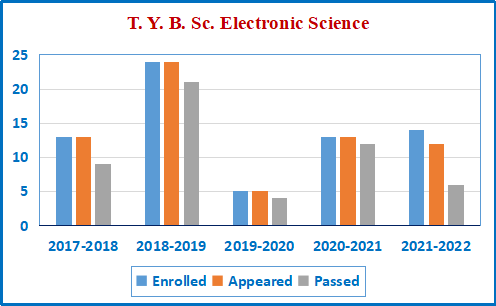 |
||
|---|---|---|
Toppers |
||
T. Y. B. Sc. Electronic Science |
||
| Year | Rank | Name of the Student |
| 2017-18 | 1 | Bachhav Manoj D. |
| 2 | Deore Swapnali K.. | |
| 2018-19 | 1 | Bagul Rohan P |
| 2 | Gaikwad Sandip R | |
| 3 | Ishi Mayur C. | |
| 2019-20 | 1 | Chavan Megharaj Bhaskar |
| 2 | Bagul Rajashree Vilas | |
| 3 | Gaikwad Sumedh Sahebrao | |
| 2020-21 | 1 | Sharma Vishal Phoolchand |
| 2 | Shelke Dhiraj Pundlik | |
| 3 | Borse Shubham Dasharath | |
| 2021-22 | 1 | Aghav Shital Valmik |
| 2 | Ahire Pradnya Kanhu | |
| 3 | Jadhav Ratan Prakash | |
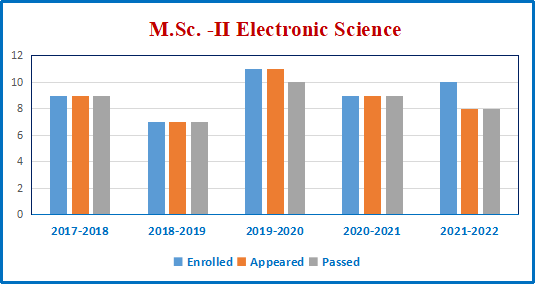 |
||
|---|---|---|
Toppers |
||
M. Sc. -II Electronic Science |
||
| Year | Rank | Name of the Student |
| 2017-18 | 1 | Thete Tejashri C. |
| 2 | Mali Tushar V. | |
| 2018-19 | 1 | Nikam Kalyani S. |
| 2 | Deore Rakesh V | |
| 3 | Nikam Smita B. | |
| 2019-20 | 1 | Visave Prachiti L. |
| 2 | Gaikwad Digambar K. | |
| 3 | Gaikwad Akshay D. | |
| 2020-21 | 1 | Bagul Rohan Pundlik |
| 2 | Bagul Parineeta Pundlik | |
| 3 | Makwana Bhavesh Dharmendra | |
| 2021-22 | 1 | Khan Anjum Asif |
| 2 | Thete Kajal Sanjay | |
| 3 | Pawar Devyani Vilas | |
Top Alumni
| Sr. No. | Name of Student | Current designation with Address | Year of Passing |
|---|---|---|---|
| 1 | Mr. Ravindra C. Naik | Assistant Director,Director of sport and youth services,Government of Maharashtra,M.S. Pune- 411 001 | 1989-90 |
| 2 | Mrs. Kavita Nerker | Deputy Commissioner of Police, (DCP) RPF Pune, Government of Maharashtra,Pune. | 2005-06 |
| 3 | Mrs. Sonali L. Wagh | Assistant Professor, K.V.N. Naik, ASC College, Canada Corner, Nashik-422002 | 2005-06 |
| 4 | Mr. Shivkumar A. Deore | Assistant Technician, Graphite India Ltd., C-7, MIDC, Ambad, Nashik-10. | 2003-04 |
| 5 | Mr. Amit Khair | Production Manager,LumenS.A.,Poland | 2001-02 |
| 6 | Mr. Kundan Zaveri | Project Leader, CemntTech, Singapore | 2001-02 |
| 7 | Mr. Rajesh Desale | Project Manager, BOVSE Electronics, South Germony | 2001-02 |
| 8 | Mrs. Ashwini Uday Aher | Research Engineer, OAK RIDGE National Lab, U.S. Department of Energy, USA | 2007-08 |
| 9 | Mr. Nitin Chinchavane | Research Associate, Orchid scientific & innovative India pvt. Ltd. B 59, m. I. D. C., Ambad, Nasik- 422010. | 2014-15 |
| 10 | Mr. Jagdale Prasad Vittal | eLuminous Technologies Pvt. Ltd, MIDC, Ambad, Nashik. | 2017-18 |
| 11 | Mr. Raut Swapnil Dattatray | MVP, Centre Office, as Technical Asst., Nshik | 2017-18 |
| 12 | Mr. Yogesh Eknath Mahajan | Technical Engineer,Sivananda Electronics, Devlali, Nashik. | 2014-15 |
| 13 | Mr. Bharambe Vikas Shridhar | Technical Engineer,, Rishabh Instrument Pvt. Ltd. | 2014-15 |
| 14 | Mr. Anil Koshti | Assistant Teacher,K.V. Devlali No. 1, Devi chouk, Devlali ,Nashik. | 2010-11 |
| 15 | Mr. Mahesh Thete | PLC and ScadaDeveloper,Satpur, Nashik | 2015-16 |
| 16 | Mr. GopalSongire | Technical Supporter,Om instrument, Valuj MIDC, Aurangabad | 2013-14 |
| 17 | Mr. Prashant A. Darde | Assistant Manager,ICICI Bank, Pachora, Dist- Jalgaon. | 2013-14 |
| 18 | Mr. Chetan B. Shinde | Jr. Engineer,Renew power Ltd.Head office- Delhi. | 2014-15 |
| 19 | Miss. Monika S. Patil | Senior Clerk,Government of India,Indian Railway, Pune. | 2015-16 |
| 20 | Mr. Lalit Chorge | Jr. Engineer,MAX Power Ltd., Pune | 2011-12 |
| 21 | Mr. Yogesh Marathe | Assistant Professor,AshokaCollege,Nashik. | 2010-11 |
| 22 | Dr.Umesh J. Tupe | Arts, Science and Commerce College , Shirsondi, Tal Malegaon Dist. Nashik | 2011-12 |
| 23 | Mr.Somnath B. Handge | Arts, Science and Commerce College , Saikheda, Tal Niphad, Dist. Nashik | 2009-10 |
| 24 | Mr.Rakesh Borse | Arts, Science and Commerce College , Shirsondi, Tal Malegaon Dist. Nashik | 2017-18 |
| 25 | Ms.Kalyani Subhash Nikam | Teaching Associate in Electronics, Jaihind College, Deopur, Dhule | 2018-19 |
| 26 | Miss. Akshada Kamlakar Nikam | Institute or Design of Electrical Measuring Instruments, Mumbai Technology Centre,Mumbai | 2018-19 |
| 27 | Mr. Bhavesh Dharmendra Makawana | ARDEM Data Services Pvt. Ltd. Nashik | 2019-21 |
| 28 | Mr. Avishkar Ashokrao Deshmukh | IKYA Human Capital Solutions, Pimpalgaon (B),Nashik | 2021-22 |
| 29 | Miss. Pawar Gayatri Anantrao | WIPRO's Work Integrated Learning Program (WILP) Banglore | 2021-22 |
| 30 | Mr. Gaikwad Tushar Ramdas | Taparia Tools Ltd, Satpur, Nashik | 2020-22 |
| 31 | Mr. Ishi Mayur Chudaman | ANN Fluid Dynamiks Pvt. Ltd. Nashik | 2018-19 |
| 32 | Mr. Mahajan Manish Santosh | MilesWeb Internet Services Pvt. Ltd.Nashik | 2019-20 |
| 33 | Mr. Shinde Chetan Bhagirath | ReNew Power Limited, Nashik | 2019-20 |
- Worked as resource person and guiding UG and PG students of our department.
- Donate books and instruments.
- Provide helps for placement of students and prepare them to face interview.
| Year | Sr.No. | Name of Activity | Date of Activity | Links |
|---|---|---|---|---|
| 2017-18 | 1 | E-Waste management and Reuse for practical Kit Making | 21/09/2017 | Link |
| 2 | Poster Presentation in the “Science Association” | 23/08/2017 to 24/08/2017 | ||
| 3 | "Poster Presentation on the occasion of “National Science Day”. | 28/02/2018 | ||
| 2018-19 | 1 | Workshop on “Component and instrument testing, repairing and Maintenance”. | 03/08/2018 to 05/08/2018 | Link |
| 2 | Poster presentation event on the occasion of ‘Mobile Day’ | 31/07/2018 | ||
| 2019-20 | 1 | E-waste Management and Reuse for kit making | 06/11/2019 to 08/11/2019 | Link |
| 2 | Posters on different themes on the occasion of “National Science Day” | 28/02/2020 | ||
| 2020-21 | 1 | Reuse of E-waste for Development of Experimental kits | 24/02/2021 | Link |
| 2 | Poster Presentation on different themes on the occasion of “National Science Day” by the students department | 03/03/2021 | ||
| 2021-22 | 1 | Reuse of E-waste for Development of Experimental kits | 23/12/2021 | Link |
| 2 | Poster and Seminar Presentation on the occasion of “ National Science Day” | 28/02/2022 |
| Year | No. | Name of Activity | Date of Activity | Links |
|---|---|---|---|---|
| 2016-17 | 1 | E-Waste management and Reuse for practical Kit Making | 31/08/2016 | Link |
| 2017-18 | 1 | E-Waste management and Reuse for practical Kit Making | 21/09/2017 | Link |
| 2 | Poster Presentation in the “Science Association” | 23/08/2017 & 24/08/2017 | ||
| 3 | Poster Presentation on the occasion of “National Science Day”. | 28/02/2018 | ||
| 2018-19 | 1 | Workshop on “Component and instrument testing, repairing and Maintenance”. | 3-5/08/2018 | Link |
| 2 | Poster presentation event on the occasion of ‘Mobile Day’ | 31/07/2018 | ||
| 2019-20 | 1 | E-waste Management and Reuse for kit making | 6/11/2019 to 8/11/2019 | Link |
| 2 | Posters on different themes on occasion of “National Science Day” | 28/02/2020 | ||
| 2020-21 | 1 | Reuse of E-waste for Development of Experimental kits | 24/02/2021 | Link |
| 2 | Poster Presentation on different themes on occasion of “National Science Day” By the student of department | 03/03/2021 | ||
| 2021-22 | 1 | Reuse of E-waste for Development of Experimental kits | 23/12/2021 | Link |
| 2 | Poster and Seminar Presentation on the occasion of “ National Science Day” | 28/02/2022 |
| Name of the activity | Organising unit/ agency/ collaborating agency | Year of the activity | Number of students participated in such activities |
|---|---|---|---|
| Online 10 Days NET-SET Workshop | Dept. of Electronic Science | 2021-22 | 25 each day |
| Reuse of E-waste for Development of Experimental kits for UG classes by Staff and MSC student | Dept. of Electronic Science | 2021-22 | 16 |
| National Level Webinar on Intellectual Property Rights | Kanadlab Institute of Intellectual Property and Research, Nashik | 2021-22 | 40 |
| One Day “Industrial Visit.” | Dept. of Electronic Science | 2021-22 | 30 |
| Hand on Training Workshop on Mobile Repairing | Dept. of Electronic Science | 2021-22 | 60 |
| Webinar on “Basics of Microcontroller” | 2020-21 | 125 | |
| Project work done at CognifrontPvt. Ltd, Panchavati, Nashik | CognifrontPvt. Ltd, Panchavati, Nashik | 2020-21 | 6 |
| Reuse of E-waste for Development of Experimental kits for UG classes by Staff | Dept. of Electronic Science | 2020-21 | 15 |
| One day NET- SET Workshop | Dept. of Electronic Science | 2019-20 | 32 |
| E-waste Management and Reuse for kit making | Dept. of Electronic Science | 2019-20 | 38 |
| Hands on Training on Internet of Things | CognifrontPvt. Ltd, Panchavati, Nashik | 2019-20 | 30 |
| Industrial Visit/ Study Tour at Epitrans | Dept. of Electronic Science | 2019-20 | 30 |
| Workshop on “Component and instrument testing, repairing and Maintenance”. | Dept. of Electronic Science | 2018-19 | 41 |
| Industrial Visit/ Study Tour at Epitrans | Dept. of Electronic Science | 2018-19 | 15 |
| One Day NET/SET Workshop | Dept. of Electronic Science | 2017-18 | 36 |
| Guest Lecture by industrial person on “PLC Guidance” | Dept. of Electronic Science | 2017-18 | 18 |
| Hands on training On “Arduino and Its Application” | Dept. of Electronic Science | 2017-18 | 28 |
| E-Waste management and Reuse for practical Kit Making | Dept. of Electronic Science | 2017-18 | 12 |
| Hands on training On “Raspberry Pie” | Dept. of Electronic Science | 2017-18 | 36 |
| E-Waste management and Reuse for practical Kit Making | Dept. of Electronic Science | 2016-17 | 19 |
| One Day NET/ SET workshop for M.Sc. students | Dept. of Electronic Science | 2016-17 | 25 |
E-Waste Management by the Reuse of Electronic Components for Practical Kits
Objectives of the Practice:- 1. To create awareness about E-waste.
- 2. To sensitize students about hazards of the E-waste.
- 3. To introduce the concept of Reduce, Recycle and Reuse.
- 4. To enhance the subject knowledge of the student.
- 5. To encourage practical application of the subject knowledge.
The Context:
The concept of waste management is fairly new in the Indian context. We have a poor waste management system and the waste is always discarded openly either by the roadside or thrown into the river water. This practice of discarding waste openly has led to many health and environmental issues. As far as health is concerned, we have been facing many epidemics since ancient times which are related to air and water-borne diseases. The rotten waste produces harmful gases that mix with the air causing breathing problems. The waste has a toxic effect due to the biodegradable gases in it. Environmental pollution is a serious issue as it has caused the clogging of the earth creating threats to the living organism on the earth. Most of the land has become infertile due to the clogging of the earth. E-Waste is particularly dangerous as it has contaminants that can lead to cancers, miscarriages and neurological damage.
The Practice:
The appropriate management of E-waste and its reuse for making practical kits has proved to be highly beneficial for the department of Electronic Science. Earlier the practical was performed manually on the Breadboard. It was a costly matter and a few students can work on it at a time. Consequently, it used to take a long time to conduct the practical sessions for all students which in turn also used to affect the teaching-learning process.
The students of the department under the guidance of the faculty re-used some of the electronic components which were supposed to be e-waste. With the help of other devices, they turned these electronic components into practical kits. They designed, developed and tested the practical kits so that they should be perfect without any drawbacks. Thus, they developed practical kits like Logic-gates, and op-amp (an operational amplifier). These practical kits made the actual practical very easy. Students can perform multiple practical on a single kit. So it became easy to conduct practical sessions for many students at a time. Similarly, there were many practical related instruments and equipment like power supplies, CRO and computers that were out of use and lying as scrap in the laboratory. The students of the department under the guidance of the faculty worked on them and turned this equipment into working conditions. Thus, with the cooperation of the faculty and the students, the department could avail a maximum number of instruments to the students for purpose of performing practical. The students get exposure to many instruments and an opportunity to tackle them and get practical knowledge.
Through this practice, the department could avail job opportunities to the students under the Earn and Learn scheme. The Board of Student Development in association with SPPU runs the Earn and Learn Scheme for economically backward students. The aim of the scheme is to avail job opportunities to the students on the campus itself so that they earn to support themselves while learning. The Board always encourages to avail job opportunities for the students where they can learn something in a true sense. The students could earn while learning and could do substantial work which is the real objective of the scheme.
At the same time, the instruments designed by the students are very costly. Through this practice, the students could save the money spent on the purchase of these instruments. All these instruments were repaired and brought into use with minimum repairing cost.
Evidence of Success:
The immediate evidence of the success is the number of practical kits available for the students. As many practical kits are available, many students can perform practical at a time that can obviously save the time which can be spared for the teaching-learning process. By designing the kits, the students can apply the subject knowledge in day-to-day life. It was a good experience of on-field learning for the students. It was a real lesson in experiential learning also. Designing the new practical kits proved to be motivation for the creative spirit of the students and they can experience the pleasure of creativity. It also led to building up the team spirit as the students work in group. Under the guidance of one another, they experimented with the e- components. It was also an ideal scenario of mentorship as senior students guided the junior ones. It could also create a good rapport between the students and teachers. As the making of the new practical kits from the discarded components is very economical it saved the cost of purchasing new practical kits. The department could avail job opportunities to the students in the department itself which is also vocational training for the students.
Problems Encountered and Resources Required
Preservation of e-waste is the main problem that was faced by the department. Usually, we discard the waste material with the conception sooner the better. It is also hazardous to preserve the e-waste. There has been the issue of the room also as the scrap material occupies a larger place. Giving training to the students is also a challenge as it involves a risk factor. The work needs to be supervised continuously. Giving training is an additional work and the faculty and the students have to spend extra time for the training. So, the time constraint has been a continuous problem.
Photographs Of Various Activities Of The Department
Research Centre Details
a. Year of introduction: 2016-17b. Highlights of the Research Centre
- Qualified and research-oriented faculty.
- Well-equipped laboratories with special a laboratory for Research.
- Well-equipped departmental library.
- Enriched research tradition with earlier M.Phil. center
- Consistent efforts to cultivate research attitudes and aptitudes of the students
- Synthesis and Characterization of pure and doped materials.
- The parameters to be measured as resistivity,
- thermoelectric power, gas, bio and optical sensing, XRD, FESEM, TEM, UV- Characterization and Photoconductivity of thin and thick films, prepared on glass and alumina substrates.
- Communication Electronics.
- Internet of Things (IoT).
| Sr. No. | Name of the guide | Year of recognition |
|---|---|---|
| 1 | Prof.( Dr.) Shinde Ugalal Pandit | 2016 |
| 2 | Prin. Dr. Patil Arun Vitthal | 2015 |
| 3 | Prin. Dr. Dighavkar Chandrakant Govindrao | 2015 |
| 4 | Prof. (Dr.) Wagh Vasant Govind | 2014 |
| 5 | Prof. (Dr.) Deshpande Mrinalini Dilip | 2014 |
| 6 | Prin. Dr. V. S. Kale | 2017 |
| 7 | Prof. (Dr.) Arif V. Shaikh | 2016 |
| 8 | Prof. (Dr.) Nitin Devram Sali | 2021 |
| 9 | Dr. Ashok Tukaram Kanade | 2022 |
| 10 | Prof. Dr. Dharma K. Halwar (Associate guide) | BOD/Sci. & Tech. /07/192 date 27/05/2023 |
Ph.D. Scholars Registered:
| Sr. No. | Name of the scholar | Name of the guide | Title of the thesis | Degree awarded | Year of award of degree |
|---|---|---|---|---|---|
| 1 | Anil Bhimrao Patil | Prin. Dr. A. V. Patil | Development of Graphene based Screen Printed Electrodes for Biomedical Applications | Yes | 2022 |
| 2 | Dnyandev B. Patil | Prin. Dr. V. S. Kale | Development of e- CALLISTO Solar Radiations System for 45 MHz to 2 GHz Frequency and its Data Analysis | Yes | 2023 |
| 3 | Miss. Patil Seema Ramkrishna | Prof. Dr. U. P. Shinde | Development and characterization of Automatic Intermittent type variable rate spraying system for row crops | Awarded | 2023 |
| 4 | Yogesh Ramesh Bhamare | Prin. Dr. C. G. Dighavkar | To study Milk Adulteration pattern in the Maharashtra and to develop electronic system for Qualitative and Quantitative analysis of milk parameters | Synopsis Submitted | |
| 5 | Archana Anant Chaudhari | Prin. Dr. C. G. Dighavkar | Synthesis and Characterization of Nano crystalline ZnO and its applications in Bio- medical sensors with qualitative analysis | Synopsis Submitted | |
| 6 | Sandhya Yogesh Wakhare | Prof. Dr. Mrunalini D. Deshpande | Role of functionalised g- Zno and g- GaN nanosheets in Optoelectronics devices: A first Principles study | Synopsis Submitted | |
| 7 | Somnath Amrutrao Wankhede | Prin. Dr. V. S. Kale | Development of Wireless Sensor Network system to monitor grapes parameters of | Synopsis Submitted | |
| 8 | Prashant Sopan Murtadak | Prof. Dr. U. P. Shinde | Study of electrical, Optical, Gas sensing and Structural Properties of mixed binary oxides of Co 3 O 4 -SnO 2 and Co 3 O 4 -ZnO thick films | Synopsis Submitted | |
| 9 | Sonali Laxman Wagh | Prin. Dr. A. V. Patil | Study of Metal Oxide Semiconductor sensors using Lab VIEW analysis | Synopsis Submitted | |
| 10 | Onkar Madansing Pardeshi | Prin. Dr. A. V. Patil | Fabrication of AVO$ (Where A=Bi, Ce, Fe ) Nanomaterial and their study as a superconductor. | Synopsis Submitted | |
| 11 | Ajay Ashok Nikam | Prof. Dr. U. P. Shinde | Studies on Structural, Electrical and Optical properties of pure and Zn doped CdTe and CdS thin films using vacuum evaporation technique | Pursuing | |
| 12 | Harshal Narayan Dandagaval | Prof. Dr. U. P. Shinde | Modeling the Interaction of Microwave Backscattering Mechanism in Earth’s Surface using Synthetic Aperture radar Datasets | Pursuing | |
| 13 | Somnath Bhika Handage | Prof. Dr. U. P. Shinde | Synthesis and Studies on Structural, Electrical and Optical Properties of LaCrO3 Thick Films with Ti, Sn and In as additives using Screen Printing Technique for Gas Sensing Application. | Pursuing | |
| 14 | Monali Eknath Niphade | Prof. Dr. U. P. Shinde | Synthesis and Studies on Structural, Electrical and Optical Properties of LaFeO3 Thick Films with Ca, Mg and Ag as additives using Screen Printing Technique for Gas Sensing Application. | Pursuing | |
| 15 | Sunil Luka Chaudhari | Prin. Dr. A. V. Patil | Investigation on Ferrite based RF and Microwave Passive Component Integrated in Low temperature Confirmed Ceramics (LTCC). | Pursuing | |
| 16 | Supriya Dhananjay Dhumal | Prin. Dr. C. G. Dighavkar | Development of highly Conducting modified solid polymer Electrolyte with efficient perovskite as sensitizer for perovskite sensitized Solar Cells (PSSC). | Pursuing | |
| 17 | Bhagawan Navnath Kadlag | Prin. Dr. C. G. Dighavkar | Development of Content Based Image Retrieval Tool for detection of various disease in Grape and Pomegranate plant using Image Processing with MATLAB | Pursuing | |
| 18 | Ejaz Nazir Shaikh | Prin. Dr. C. G. Dighavkar | Synthesis of Perovskite materials and study Opto- electronics properties of its use in photovoltaic technology | Pursuing | |
| 19 | Sachin Sarjerao Bandgar | Prin. Dr. C. G. Dighavkar | Synthesis and Study of Nano structured Yttrium based Perovskite Oxides (YBO 3 ) by Hydrothermal Technique for Green House Gas Sensing Application | Pursuing | |
| 20 | Amol Sahebrao Patil | Prin. Dr. C. G. Dighavkar | Development of Yttrium oxide nanostructures using Sol-Gel approach for optical characterization and sensing environmental Pollutants. | Pursuing | |
| 21 | Samadhan Madhukar Nikam | Prin. Dr. C. G.Dighavkar | Preparation of Transition and Inner Transition Metals Doped Bismuth Oxide Thin Films for Gas Sensing Application. | Pursuing | |
| 22 | Kirankumar Premchand Johare | Prof. Dr. V. G. Wagh | IoT (Internet of the things) and AI ( Artificial Intelligence) Assisted Home Automation. | Pursuing | |
| 23 | Bhushan Subhash Pardeshi | Prof. Dr. V. G. Wagh | Study of Nb 2 O 5 as Metal Oxide Gas Sensor | Pursuing | |
| 24 | Manisha Karbhari Borse | Prof. Dr. V. G. Wagh | Development of Synthesized Graphene Oxide with dopant Based Electrodes for Energy Storage and Biosensing Applications | Pursuing | |
| 25 | Dhananjay Navnath Kadlag | Prof. Dr. V. G. Wagh | Design and Development of high efficiency single phase Transformer less inverter for photovoltaic system applications. | Pursuing | |
| 26 | Ushir Mayur Sakhahari | Prof. Dr. V. G. Wagh | Design and development of Sensor to Nutrient Management System in Crop Science for Plant Growth Using Internet of Things. | Pursuing | |
| 27 | Monali Shivaji Hase | Prin. Dr. V. S. Kale | Air Pollution and Green House Gases detection system using Wireless Sensor Network and IoT | Pursuing | |
| 28 | Satish Subhash Haral | Prin. Dr. V. S. Kale | Development of Polyaniline- Metal Oxide based Heterojunction for Optoelectronics Applications | Pursuing | |
| 29 | Sajid Naeem Ehsanur Raheem | Prof. Dr. Arif V. Shaikh | Electrochemical deposition of Cobalt based metal hydroxide and their application in Supercapacitor | Pursuing | |
| 30 | Saima Gous Sayyed | Prof. Dr. Arif V. Shaikh | Electrochemical Deposition of Transition Metal Oxides and their application in Supercapacitor | Pursuing | |
| 31 | Mukund Tatyarao Kakre | Prof. Dr. Arif V. Shaikh | Performance and Evaluation of Solar Photovoltaic Power System located in different geographical location | Pursuing | |
| 32 | Sagar Shantaram Watpade | Prof. Dr. U. P. Shinde | IoT Based Smart Home Using Single Board Computer to Save Energy, Time, Cost and Secure Daily Human Life | Pursuing | |
| 33 | Rajiv Nandkishor Kanojiya | Prin. Dr. A. V. Patil | Green Synthesis and Characterization of Graphene Derivatives and its Application in Energy Storage and as a Chemical Sensor. | Provisionally admitted | |
| 34 | Sharadchandra Narayanrao Bangayya | Prof. Dr. N. D. Sali | Design and development of Embedded Portable E-Nose for Classification of tropical Fruits. | Provisionally admitted | |
| 35 | Darshana Ashok Minde | Prin. Dr. A. V. Patil | Development & Study of Paper Battery as a Hybrid, Flexible, and Promising Electronics Component. | Provisionally admitted | |
| 36 | Jayshree Bhika Pachorkar | Prof. Dr. N. D. Sali | Development of NiO-Based Screen Printing Electrodes for Battery Electrodes Application. | Provisionally admitted | |
| 37 | Sunil Sundarrao Barkade | Prof. Dr. N. D. Sali | Synthesis and Characterization of Pristine, Doped Zinc Oxide (ZnO) and Barium Titanate (BaTiO3) Nanofibers for Piezoelectric Sensor Application. | Provisionally admitted |
Research Projects Completed:
| Sr. No. | Name of the faculty | Title of the project | Funding agency | Year of award |
|---|---|---|---|---|
| 1 | Prin. Dr. C. G. Dighavkar | Semiconducting Metal Oxide Based Nano Sensors for Humidity and Selective Gas Pollutant Detection | U.G.C.,New Delhi | 2012 |
| 2 | Prin. Dr. A. V. Patil | Synthesis, characterization and Gas Sensing properties of Nanostructures Metal Oxides and their composites films | U.G.C., New Delhi | 2012 |
| 3 | Prof. Dr. U. P.Shinde | Studies of ZnTe thick films on glass substrate” | BCUD,Pune | 2009 to 2011 |
| 4 | Dr. C. G. Dighavkar | Preparation and Characterization of Thick Film of Metal Oxide. | BCUD Pune University | 2006 - 2008 |
| 5 | Dr. A. V. Patil | Electrical Properties and X-ray Diffraction of Solid Films of Metals and their Oxides and alloys. | BCUD Pune University | 2006- 2008 |
Research Papers Published:
| Sr. No. | Name of the faculty | Number of research publications | Number of o UGC-CARE Listed / Scopus/ WOS Publications | View Details |
|---|---|---|---|---|
| 1 | Prof. ( Dr.) U. P. Shinde | 42 | 33 | view |
| 2 | Dr. A. B. Patil | 18 | 15 | view |
| 3 | Ph. D. Students | 15 | 15 | List of Publications |
| 4 | P.G. Students | 06 | 06 | List of Publications |
Books /Chapters Published:
| Sr. No. | Teacher Name | Title of the book/chapters published | Year of publicatio n | ISBN/ISSN number of the proceeding | Name of the publisher | |
|---|---|---|---|---|---|---|
| 1 | Dr. U. P. Shinde | Semiconductor Devices and Basic Electronic Systems F. Y. B. Sc (Computer Science) Paper I- Sem-I | Publisher & Printer: INSC International Publisher, Chikkamagalur, Karnataka | 2021 | 978-1-68576-019-9 | Publisher & Printer: INSC International Publisher, Chikkamagalur, Karnataka |
| 2 | Prof.(Dr.) U.P. Shinde | Electronics Devices and Circuits F. Y. B. Sc Electronics Science Paper II- Sem-I | 2021 | 978-3-91276-94-2 | Dreambook Publishing | |
| 3 | Prof.(Dr.) U.P. Shinde | Communication Electronics S. Y. B. Sc Electronics Science Paper I Semester- III, EL-231 CBCS (June-2020-21) | 2021 | 978-1-68576-047-2 | Publisher & Printer: INSC International Publisher, Chikkamagalur, Karnataka | |
| 4 | Prin. Dr. C. G. Dighavkar | TiO2 Thick Film Gas Sensor | 2011 | 978-3-8443-8755-1 | LAP Lambert Academic Publications, Germany | |
| 5 | Prin. Dr. C. G.Dighavkar | Metal Oxide Based Sensors | 978-3-659-78496-5 | LAP Lambert Academic Publications, Germany | ||
| 6 | Dr. A. V. Patil | Semiconductor Devices and Basic Electronic Systems F. Y. B. Sc. (Computer Science) Paper I- Semester-I | 2021 | 978-1-68576-019-9 | Publisher & Printer: INSC International Publisher, Chikkamagalur, Karnataka | |
| 7 | Dr. A. V. Patil | Electronics Devices and Circuits F. Y. B. Sc. Electronics Science Paper II- Semester-ICBCS (June-2019-20) | 2021 | 978-3-91276-94-2 | Dreambook Publishing | |
| 8 | Dr. A. V.Patil | Communication Electronics S. Y. B. Sc Electronics Science Paper I Semester-III, EL-231 CBCS (June-2020-21) | 2021 | 978-1-68576-047-2 | Publisher & Printer: INSC International Publisher, Chikkamagalur, Karnataka | |
| 9 | Dr. A. V. patil | Physics for CSIR-NET/SET | 2019 | 978-81-934781-8-9 | VaishaliPrakashan, Pune | |
| 10 | Dr. A. V. Patil | ZnO thick films Gas Sensor | 2011 | 978-3-8454-1056-2 | Lambert Academic Publishing GmbH & Co.KG DudweilerL and straße 99 D - 66123 Saarbrucken, Germany | |
| 11 | Dr. A .V. Patil | A text book of Physics, T.Y.B.Sc. paper IV- Electronics II | 81-7815-025-5 | Vrinda Publications Bhimsing Market, Station Road, Jalgaon | ||
| 12 | Ms. Saima G. Sayyed (Research Student) | Chapter: 3: Structural and Electronic Properties of Various Useful Metal Oxides Book: Chemically Deposited Nanocrystalline Metal Oxide Thin Films, 49- 84 | 2021 | 978-3-030-68462-4 | Springer |
Conferences Organized:
| Sr. No. | Title of the conference | State/National /International | Schedule | View Details |
|---|---|---|---|---|
| 1 | International Conference On “Innovations In Nanomaterials and Their Applications (ICINA- 2018)” | International | JANUARY 18- 20, 2018 | view |
| 1 | Two Day National Conference on ,"Recent trends in advance communication | National | 12/01/2015 to 13/01/2015 | view |
Workshops on IPR and Research Methodology:
| Sr. No. | Title of the conference | State/National/ International | Schedule | View Details |
|---|---|---|---|---|
| 1 | Workshop on Research Methodology | State | 15-09-2017 | view |
| 2 | Workshop on Research Methodology for Ph. D Student | State | 04/01/2019 to 13/01/2019 | view |
| 3 | Course Work for Ph. D Student | State | 14/01/2019 to 23/01/2019 | view |
| 4 | National Level Webinar on “Intellectual Property Rights” | National | 23/02/2022. | view |

